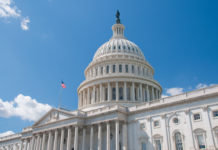On May 5, 2023, the Centers for Medicare and Medicaid Services published a proposed rule surrounding improved access to care. Within the 130-page proposal, several provisions surrounding HCBS were outlined including:
- Person-centered service plans must be updated at least every 12 months or anytime a resident experiences significant needs change. The six performance measures for person-centered service plans would change to five priority areas of person-centered planning, health and welfare, access, beneficiary protections, and quality improvement and a new 90 percent performance threshold with no good cause exemptions would be imposed. That’s up 4 percent from the 2014 guidance.
- The state would need to implement a grievance procedure surrounding state and provider compliance for person-centered planning and service plan requirements.
- The state would need to adopt an Incident Management System that at a minimum collects, tracks, and trends data. CMS would like to see states adopt a system that “identifies, reports, triages, investigates, resolves, tracks, and trends.”
- Additional HCBS reporting requirements for states would be imposed to provide consistency among state reporting and identify trends.
- Payment adequacy would establish a federal minimum standard of payment to direct care workers at 80% of Medicaid payment. This 80% would be spent on compensation, but compensation only includes salary, wages, and other remuneration as defined in the Fair Labor Standards Act, benefits, and employer share of payroll taxes. It does not include training costs or other administrative costs such as onboarding or clinical supervision. Direct care staff includes those providing nursing services or assisting with activities of daily living (ADL) such as RNs, LPNs, NP, and CNS. Nurses in supervisory or administrative roles not providing HCBS services directly would not be included.
- States will be required to submit additional supporting documentation to show transparency and consistency of waitlists for HCBS services.
Additional provisions surrounding state Medical Care Advisory Committees (MCACs) including a beneficiary voice and fee-for-service (FFS) payments were included in the full proposal. CMS states the payment adequacy provision was based off other states who have implemented staffing minimums and would reduce workforce turnover. CMS believes 80% is within reason as there should not be significant overhead costs for providers offering HCBS. The implementation date for this provision would be four years post publication. We are continuing to monitor and provide feedback to our national partners who are working to draft a comment in response to the proposed rule. Comments are due July 3rd.




